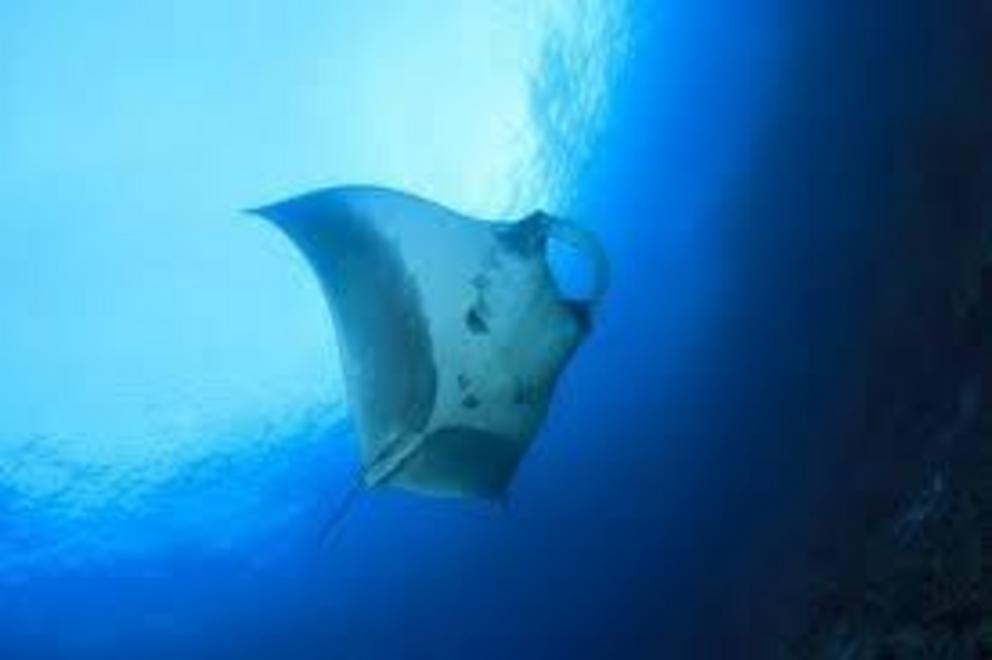Overfishing has caused shark, ray population to plummet by 71 percent
Three-quarters of these species are now threatened with extinction.Shark and ray populations have dropped 71% in the last 50 years and many are at the risk of facing extinction.1
A new study published in the journal Nature found that overfishing is the major reason for the staggering global species decline.1
“We knew the situation was bad in a lot of places but that information came from different studies/reports, so it was difficult to have an idea of the global situation. It’s the first global synthesis of the state of these critical species,” Nathan Pacoureau, the paper’s lead author and postdoctoral research fellow for Earth to Ocean Research Group, tells Treehugger.
“While we initially intended it as a useful report card, we now must hope it also serves as an urgent wake-up call to leaders and policymakers.”
Pacoureau was part of an international team of experts that analyzed 31 species and found nearly a three-quarters drop in abundance since 1970.1 The data showed what Pacoureau calls a “gaping, growing hole in ocean life.”
While factors like climate change and human habitat interference play a part, the largest impact has been overfishing.1 Relative fishing pressure on sharks and rays is now 18 times greater since 1970.1 Nearly three-quarters of the species studied (24 out of 31) are now threatened with an elevated risk of extinction under the Red List criteria of the International Union for Conservation of Nature (IUCN).2 Three — the oceanic whitetip and the scalloped and great hammerhead sharks — are now classified as critically endangered.
“This is shocking ... even for experts. And at the same time, not so surprising, with the massive increase in fishing effort since the ‘50s and the lack of regulation/management, we were expecting bad news,” Pacoureau says.
For the study, researchers used two major biodiversity indicators to track species progress: the Red List Index, which measures extinction risk, and the Living Planet Index, which measures trends in species populations.
Because sharks and rays are below the ocean surface they are traditionally difficult to assess and monitor, the researchers say. They are particularly vulnerable to overfishing because they grow slowly and have few offspring.1 They are popular for their meat, fins, gill plates, liver oil, and for recreation as people fish and dive for them.
“While rising international demand for shark fins and gill plates is a major issue, the perennial problem is that overfishing of oceanic sharks has far outpaced effective management of fisheries and control of trade,” Pacoureau says. “Governments have failed in their treaty obligations to protect these threatened species.”
Power of Fishing Limits
Researchers say their findings aren’t utterly without hope. They spotlight a few success stories in the study that demonstrate that fishing limits can help reverse population declines.1
For example, great white sharks had dropped by an estimated 70% globally since 1970, but are now recovering in several areas, including off both U.S. coasts due to government bans and fishing limits.1 Northwest Atlantic hammerhead shark populations also seem to be rebounding due to strictly enforced fishing quotas in the U.S.
Pacoureau points out the many steps conservationists and policy makers can take to protect the species including retention bans for endangered and critically endangered species, catch and trade limits for less threatened species, and measures to minimize incidental deaths in fisheries targeting other species.
“It is important to note that many beneficial safeguards are already mandated through global wildlife treaties … so a relatively simple initial step is for member countries to live up to those commitments through national regulations,” he says.
“Similarly, there are many regional fishery obligations for specific shark and ray safeguards that have not yet been implemented nationally. In other words, countries should work toward new international shark and ray protections but can start immediately by simply fulfilling at the national level myriad obligations already agreed internationally.”

